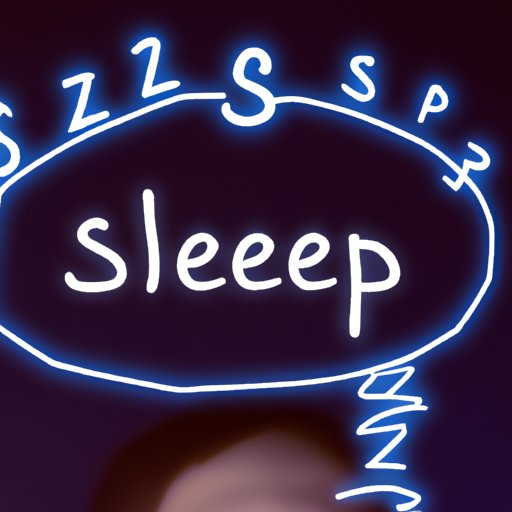
Introduction
Sleep is vital for our health and wellbeing, yet many of us don’t get enough of it. From a busy work schedule to personal responsibilities, there are many reasons why we might skimp on sleep. However, the effects of sleep deprivation can be severe and impact our physical and mental health, as well as our relationships and productivity. In this article, we’ll explore what happens when you don’t sleep and offer tips for getting a better night’s rest.
The Physical Effects of Sleep Deprivation
When we don’t get enough sleep, our body suffers physical effects. One of the most significant is a weakened immune system, which can make us more susceptible to illness and infection. Additionally, lack of sleep has been linked to an increased risk of obesity, as it disrupts our metabolism and hormone regulation. Research has also found that sleep deprivation can lead to high blood pressure, heart disease, and diabetes.
The Mental Effects of Sleep Deprivation
The effects of sleep deprivation on our mental health and wellbeing are just as significant as the physical effects. Lack of sleep can cause mood disruptions, leading to irritability, anxiety, and depression. It can also impair our memory and decision-making abilities, making it difficult to perform daily tasks. Chronic sleep deprivation has even been linked to a higher risk of developing mental health conditions such as schizophrenia.
How Sleep Affects Your Productivity
When we’re sleep-deprived, it’s tempting to pull an all-nighter to catch up on work. However, this strategy can be detrimental to our productivity. Lack of sleep impairs our ability to concentrate, reduces our cognitive functioning, and ultimately slows us down. Research has found that workers who get enough sleep are more productive, efficient, and make fewer errors than those who don’t.
Sleep and Your Relationships
Sleep deprivation can have a severe impact on our relationships. When we’re tired, we’re more irritable and sensitive, leading to tension and strain. This can affect romantic relationships and friendships, as well as our ability to collaborate and work with others. If sleep deprivation becomes chronic, it can damage the quality of our relationships and lead to isolation.
The Dangers of Driving While Sleep-Deprived
One of the most significant dangers of sleep deprivation is driving while tired. Sleep-deprived driving is responsible for thousands of accidents every year and can have fatal consequences. When we’re sleep-deprived, our reaction times are impaired, and we’re more likely to make errors while behind the wheel. It’s essential to recognize the signs of sleep deprivation and avoid driving if you haven’t had enough rest.
How to Recognize Sleep Deprivation
Recognizing the signs of sleep deprivation is key to improving our sleep and overall health. Common signs of sleep deprivation include difficulty falling asleep, waking up frequently during the night, and feeling tired during the day. Other signs include mood swings, difficulty concentrating, and forgetfulness. If you experience any of these symptoms, it’s crucial to seek help and establish a healthier sleep routine.
Tips for Getting a Better Night’s Sleep
To improve our sleep, it’s essential to establish a healthy sleep routine. This includes going to bed at the same time each night, avoiding screens before bedtime, and practicing relaxation techniques such as meditation or deep breathing. You may also want to try creating a sleep-conducive environment by keeping your room cool, dark, and quiet. Taking steps to reduce stress and anxiety can also help improve the quality of your sleep.
Conclusion
Sleep is a crucial aspect of our overall health and wellbeing. When we don’t get enough of it, we can suffer adverse physical and mental effects that impact our relationships and productivity. Fortunately, recognizing the signs of sleep deprivation and taking steps to improve our sleep can help us get back on track. By prioritizing our sleep and working to establish healthier habits, we can improve our overall quality of life.




